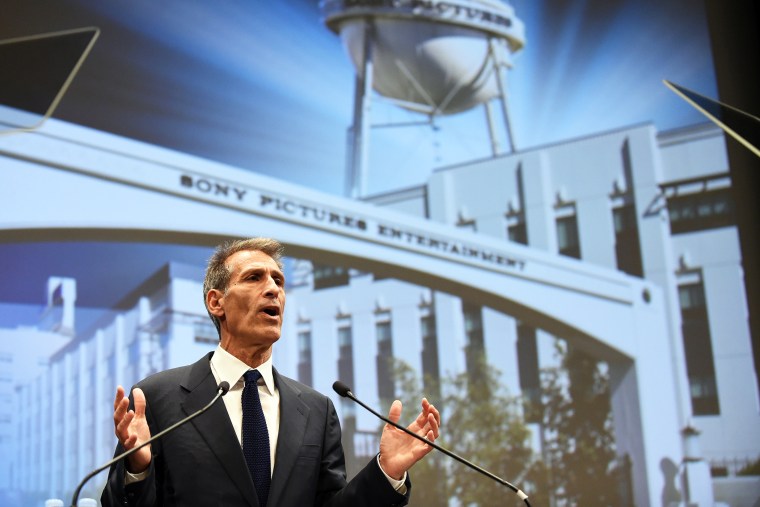Sony is pushing back against a barrage of criticism from pundits, celebrities, and even President Obama, over their decision to pull "The Interview" from theaters amid threats from North Korean-backed hackers, ahead of its scheduled Christmas Day release. The comedy film, which stars James Franco and Seth Rogen, depicts the assassination of North Korean dictator Kim Jung Un.
On Friday, during his annual year-end press conference, Obama joined a chorus that includes his celebrity friend and regular donor George Clooney, saying he thought Sony made a "mistake" by yanking the movie.
RELATED: George Clooney: Release "The Interview" online
“We cannot have a society in which some dictator some place can start imposing censorship here in the United States,” Obama added. “Because if somebody is able to intimidate folks out of releasing a satirical movie, imagine what they start doing when they start seeing a documentary they don’t like or news reports they don’t like. “
The president went on to say that he wished Sony had run their decision by him first.
Sony CEO Michael Lynton told CNN in an exclusive interview on Friday that the "president, the press, and the public are mistaken." He said that contrary to what the president said, Sony did reach out to the White House to discuss the the hacking situation. "We definitely spoke to senior advisors ... whether we spoke the president himself ... the White House was definitely aware of the situation," he said.
“We have not caved, we have not given in. We have persevered, and we have not backed down. We have always had every desire for the public to see this movie,” Lynton added.
In a separate interview with NPR's "All Things Considered," Lynton insisted that Sony "very much wanted to keep ["The Interview"] in release" and said that studio has to "look to other avenues for that to happen."
RELATED: FBI concludes North Korea responsible for Sony hack
In an official statement released later on Friday, Sony said they remain "strongly committed to the First Amendment."
"Let us be clear – the only decision that we have made with respect to release of the film was not to release it on Christmas Day in theaters, after the theater owners declined to show it. Without theaters, we could not release it in the theaters on Christmas Day. We had no choice," Sony said.
Meanwhile, Sony was hit with a fourth in a series of lawsuits this week alleging the company failed to protect critical employee data. The Nov. 24 hacking of the film studio exposed hundreds of private emails exchanges, details on major films still in production, and personal information such as Social Security numbers and medical records of Sony employees.
The group claiming responsibility for the hack, the self-proclaimed "Guardians of Peace," are believed to be linked to the North Korean government, according to the FBI.
"We are deeply concerned about the destructive nature of this attack on a private sector entity and the ordinary citizens who worked there,” the FBI said in a statement. It continued: ”North Korea’s attack on SPE reaffirms that cyber threats pose one of the gravest national security dangers to the United States. Though the FBI has seen a wide variety and increasing number of cyber intrusions, the destructive nature of this attack, coupled with its coercive nature, sets it apart. North Korea’s actions were intended to inflict significant harm on a U.S. business and suppress the right of American citizens to express themselves.”
